Lessons From A Clown: Finding Your True Authentic Self With Em Stroud
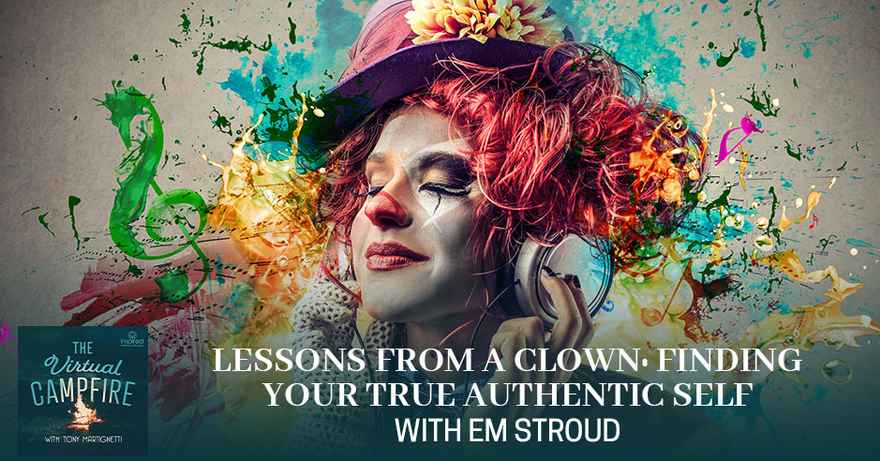
Acting isn’t about pretending to be someone else, it's about portraying your true, authentic self. Clowning is also very similar to that. You show the world what you're seeing through laughter and kindness. Discover how Em Stroud found her true self by being a professional clown. She was able to discover all the different parts of herself by performing in front of an audience. Listen to your calling and be who you want to be. Join Tony Martignetti as he talks to Em about her career in acting to clowning. Also, hear more about her book, Lessons From A Clown: How To Find Courage To Show Up For Yourself and Laugh Every Day. Learn how to find your authentic self today!
---
Listen to the podcast here
Lessons From A Clown: Finding Your True Authentic Self With Em Stroud
It is my honor to introduce you to my guests in this episode, Em Stroud. Em is on a mission to get the world to laugh, think and play more. Em is a creator, podcaster, author, speaker, emcee and clown. She can be seen emceeing and speaking at events across the world. She runs mastermind groups for CEOs, MDs and entrepreneurs. Her clients include Barclays, Bloomberg and Bear, to name just a few. It all happened to start with a B. Her podcast, Clowning Around, launched successfully in February of 2020 and is now a top 30 podcast in the UK and has listeners worldwide.
Her first book, Lessons from a Clown: How to Find Courage to Show Up for Yourself and Laugh Every Day, was published in October of 2021. She writes regularly for various magazines, including The Psychologist Magazine, The Edge, and Cosmopolitan. She has been a featured expert on the BBC and ITV. Her TEDx Talk, Be More Banana is the only TEDx Talk where the speaker is dressed as a banana. She lives in Southwest London with her son, William, and her dog, Charlie. She bought a new monkey bike, which she is thrilled to get out and ride. I am so thrilled and honored to have you on the show. Welcome to the show.
Thanks. It's always so lovely to come and chat with brilliant people like you. It was a bit weird listening to my bio but you made it so lovely. Thanks for having me, lovely.
I'm so thrilled. This is going to be so much fun. I have been watching all the things that you do, listening to your podcast, and reading your book. It puts a smile on my face to see the things that you do in the world. I know that the journey to getting to who you are has a lot of challenges along the way that can reveal who you are.
That's what we do on the show. We want to help you share your story of what brought you to do the things you're doing in the world. What we're going to do is we're going to reveal who you are through what's called flashpoints, points in your journey that have revealed your gifts into the world. Learning your story, we'll pause along the way and see what's showing up. We'll have a lot of fun along the way.
This all sounds delightful.
From there, you can take it wherever you would like to start. You can start as early as your childhood. You can start in whatever order you like.
Some people like to act on stage to hide that they're really hurting inside.
You're giving a clown a free rein. This is always a dangerous thing for me. Who knows where I might go? It's interesting when I hear the word flashpoint or the moments that changed and triggered a different life trajectory for me. It's fair to say that one of the first ones for me was when I was sixteen. Up until then, my whole identity had been sport. I’m pretty decent at some other sports. I then injured my back. With the initial injury, I went back to sport too quickly and properly injured it.
Suddenly, my whole identity, which up until that point had been sport. It's all right because I'm good at sport. That was where I spent the majority of my free time. I was told, "You have six months of sport." When you're sixteen, six months is a huge amount of time. It's quite a long amount of life anyway but at sixteen, it's like, "What?" I remember feeling quite lost. One of my friends said, "There's a school play. Do you want to come along and have a go?"
I honestly did not know that the school even did plays because it was so out of my realm. I went along and had that archetypal X factor or pop star idol. I then end up getting the lead comedy part. Suddenly, it was like, "Hang on a minute.” I like this being on stage thing. I'm enjoying this relationship with the audience. I'm reveling in this being inside and warm because it's quite cold in the UK when you're playing lacrosse and you’ve got a few people watching you.
You used the word flashpoints. That was one of those moments where I was like, "I would like to do more of this. I want to explore what this feels like." The school that I went to was quite academic. I was expected to go and do business studies and carry on down that path. I snuck because we filled out a thing called the UCAS form in the UK. My sixth option on that was Theater and Performance Studies. It was down in Devon. It was not the traditional path. That's where I ended up going.
As I look back on my life, that moment was one of those pivotal flashpoints of like, "I like this thing called being on stage. I like this relationship with an audience." That was a starting place for me. There was a safety net about going on stage. At that point, going on stage meant that I was performing. I didn't have to show the world who Em Stroud was. I can be other people. My dad had died when I was ten and the rest of my childhood was not exactly idyllic and happy with my mom.
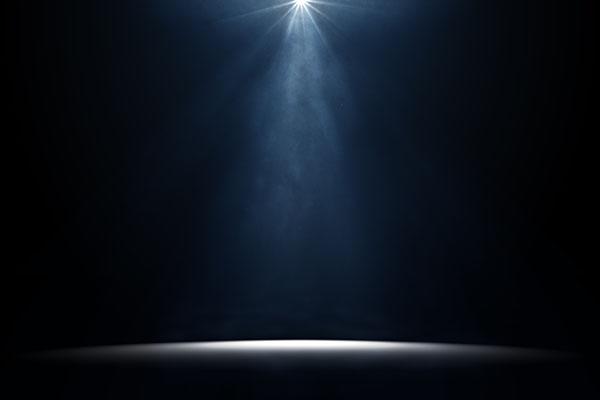
Authentic Self: There was a safety net about going on stage. Because once you're performing, you didn't have to show the world who you are. You can be other people on stage.
I found myself in this place where I didn't know who I was, I hadn't come out, all of these different things. If you spoke to my sixteen-year-old self, I did not know this. My sixteen-year-old self knew that there was something safe about going and playing being other people. If I could be other people, then people won't see that I was hurting, feeling sad or still processing my dad dying and things. That took me on the trajectory of performing and going down that route. It led me to this beautiful world of exploration of the craft of acting. It led me eventually to the world of clowning.
What shifted for me as I reflect on that was for a lot of my early twenties, I just continued to look for, "How could I be someone else? How could I put the masks on? How could I try and be what the audience wanted me to be? How could I show up in the world?" I discovered I was funny. If you discover that you've got a sense of timing and you can make people laugh, it's a good distractor. If people are laughing, they don't see what's going on. That was probably one of the real first flashpoints for me in my life.
I love what you shared. There's something about this, which is starting with this idea of shifting and seeing that you're more than just sports. You can still love sports and still enjoy that aspect of who you are. Moving into this has opened up Pandora's box of who you were to become. Being someone else allows you to express and feel emotions that you are probably trying to hide from yourself.
When I left uni, I set up my first theater company. I also started in the world of sales. I've always had this performing and business side part of me that has always been quite strong. I then got my first professional acting job. At this point, I still very much believe, "What if I become an actor and I'm pretending to be somebody else?" I was lucky I got to go to a good drama school. That was probably the next flashpoint where I was like, "Acting is not pretending to be someone else. Acting is the portrayal of truth."
That's why it's different when you see professional actors versus amateur actors. You can spot those people who have started the craft versus those who haven't. When I went to drama school, I originally was going to go and do it as a post-grad for one year. I got there and suddenly I was like, "Oh no." It's because I had to start working out who's Em Stroud. Drama school is the most intense therapy you'll ever do. It's very joyful. It's pretty intense. It's pretty full-on but suddenly, I was being forced to look into the mirror.
Acting is not pretending to be someone else. Acting is the portrayal of truth.
It was from that moment that the next change in my life. It was like, "I can't carry on pretending. I have to work out who I am." That started my delving into the world of personal development and curiosity about, "How do we coach? How do we grow? What does that look like? If I take away all the masks, who am I?" To do that, I had to process a lot of stuff. That has been a 21-year odd journey. It carries on because life carries on as lucky as we all are to be alive.
I want to pause and speak to this for a moment because there's something about what you shared. There are so many leaders and people in general who are out there trying to put on the mask and thinking that they're sharing "authentically" who they are. Authenticity seems to be that buzzword that we have overused. The reality is people aren't going to feel who you are until you've faced it yourself. There's that inner journey of facing the truth of your own reality that allows you to show up, and people will feel that.
You're right. I spent a lot of my life working with people that have become so good at thinking that their mask is who they are because there's that whole professional versus personal identity. I struggle with that. Surely we're all humans. This whole lovely idea about your podcast about sitting around the campfire, who are you around the fire?
Who are you when you take down the guard and be vulnerable and true to who you are? Oftentimes we don't ask ourselves honest questions. When I started my business, one of my taglines was, "Inspiration through honest conversation," which was a starting point for the first honest conversation with yourself. You can feel that as being the reality of digging deeper and asking, "Who am I?"
It's scary. This is not what society teaches us to do. It takes bravery to enter that realm of going, "Who am I? What are the bits of me that I don't like? What are the bits of me that I struggle with still?" It's far easier to get into the realm of existing, living, and not slowing down and stopping. It's when you slow down and stop that you can reveal and learn about yourself. Ultimately, it's only ourselves we have a relationship with for our whole lives.
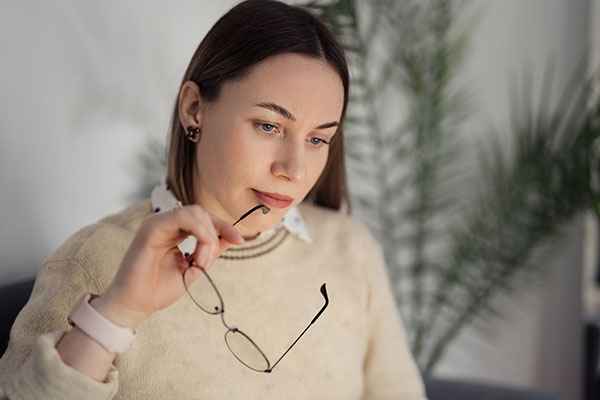 Authentic Self: It's far easier to get into the realm of existing and living and not slowing down and stopping. But it's also when you slow down and stop that you can reveal and learn about yourself.
Authentic Self: It's far easier to get into the realm of existing and living and not slowing down and stopping. But it's also when you slow down and stop that you can reveal and learn about yourself.
You have to like that person.
It helps. It has been a journey. Joking aside, it's taken me until now. I'm in my early 40s now. I still get asked for an ID for alcohol. It has taken and it has been the last couple of years. If I look at my early 30-year-old self, there is no way that I would have owned the fact that I'm a clown, do comedy, make films, and write. I would have been worried about what other people would have perceived about that. Even in my early 30s, I hadn't hit that place where I was like, "This is all of me. It's okay that I carry on shifting and evolving."
It is a lifelong journey. Every day as I move forward more and more into that place of who am I and how can I be the best Em Stroud, the more comfortable it is and the less I'm worried. A big indicator of that for me was a simple thing. I've had a series of new photos taken for my website, branding, and all of this stuff. The last time I got my photos done was about a few years ago. At that point, I was wearing all black all the time. Sometimes I still wear black. I'm wearing a black jumper but it's got white and blue on it. That was what I used to wear everywhere.
I will go all black. You don't see me but see me. I'll be in charge of what bit I add to the blackness, so I'll add a funny tie, or I might add some cool trainers. I remember doing that particular photoshoot. It was okay. It was for a photoshoot. I was like, "I'm okay." She was a great photographer and I got some good photos. In this one that I did a few weeks ago, a couple of things shifted. It's one of those things that sometimes you need to do these things to notice how far you've grown. I was wearing different things with colors. The second bit was I didn't mind having my photo taken because I didn't mind being seen as I am now.
It's beautiful to hear that because there's this element where now you look back and say, "I've come to grips with who I am. I'm comfortable with who I am." You're never complete because the journey continues, but you've come to grips with who you are. For me, the thing that we can all want for ourselves is to be comfortable in our own skin and in being who we are, including our flaws.
Sometimes it's okay to rest than to continuously push yourself.
The thing that I find interesting about where I'm at now is the awareness of the flaws is there, but the thing that is still a work in progress is, how do I meet those parts of me? In the past, the bit of me that I didn't like so much is I used to be so critical of that inner voice and inner critic. Whereas now, most of the time, I can meet those parts with kindness and curiosity like, "Okay."
We all have those self-destructive bits or that bit that's like, "I can't be bothered to go to the gym,” even though I know I'll feel great afterward." It's like, "Why do you not want it?" What I've learned is quite often, that bit of me that says, "Don't go to the gym," if I calm it down, it's protecting me sometimes going, "You're tired. You need to rest rather than continue to push yourself.” You have to listen and be kind."
I love that. I want to shift gears a little bit and get back into your story. First of all, you are a clown. Tell me, how did that happen? How did the transformation from getting into acting to making the commitment to become a clown?
I love watching people articulate questions around clowns because they're like, "I don't get to meet that many." When I was at uni, I did a term of clowning and commedia dell'arte. I had done a little bit of planning, but we're going back to 1920. I got to study over in Italy and I liked it, but then I put it down. I liked it but it also scared me. It's one of those things. It was like, "I liked it but this is scary stuff."
Even up to 30 years old, I don't think I could have got my head around clowning. I had to sort the rest of me out before I could embark upon the journey of understanding clowning and the craft of clowning. That was a couple of years ago. You might have certain websites and courses that you naturally keep looking at the website and go, "One day, I'll do that. One day, I'll climb Kilimanjaro. I'll do that thing." There are arguably 4 or 5 top clowns in the world. There's this one woman. The other four are men. Her name is Angela DeCastro. She's this Brazilian clown. She slightly scared me, which is always a good place to be in.
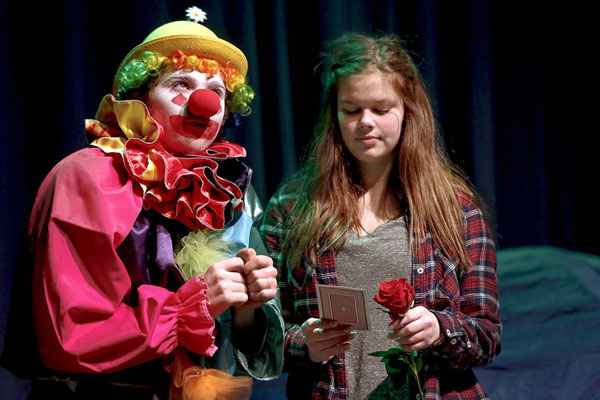 Authentic Self: People don't really understand clowns. They are the observers of life. They see what's going on and use humor and kindness to say what's going on.
Authentic Self: People don't really understand clowns. They are the observers of life. They see what's going on and use humor and kindness to say what's going on.
For the first time in a decade, I had to write a letter of application about why I wanted to do it and provide a CV. I was like, "I have not done a CV for years. I don't know what I'm doing." I wanted to go and explore what being a clown meant. It's important because I'm aware lots of people don't understand clowns because we're misrepresented. As clowns, we're the observers of life and sort of this thing called jester or Shakespearean fool. You've got the idea. We say what's going on but we use humor and kindness to say what's going on.
Most of us are aware that we have different parts of ourselves. Clowning is an extension of that. It's about exploring one part of yourself and allowing yourself into this beautiful place. I remember the first two-week course that I did with her. I had been accepted. I went in and had every feeling you could possibly have of like, "I'm not going to be creative enough. I shouldn't be here. I'm not really a clown. What is this?" Everything that we all feel, I felt. I was looking around and they looked like they had been doing that for years.
During those two weeks, there were certain moments on that when I experienced what I can only describe as a deep shift within my own consciousness because clowning is a state. I’ve discovered it similar to being in a meditative state or a joyful state. The particular clown that I discovered on that course is Orange who I co-wrote my book with. Orange is the most childlike, optimistic, and kindest part of me. I remember when Orange first got to meet people who weren't other clowns. I was doing a show on the West End in London. It was autobiographical. It was Orange and me doing the show.
I was co-performing with Orange. Orange would welcome all the audience in. Orange has this beautiful, amazing soul. There was this one woman and she sat down. Through Orange's eyes, Orange notice that this woman had the most amazing necklace and the most amazing eyes. Orange said, "You are so beautiful. I love the fact that your eyes match your necklace." As Em Stroud, I'm a pretty confident soul but I'm British. There was no way that I would possibly go up to a complete stranger going, "Your necklace, beautiful eyes." I would also be aware that I'm talking to a girl and I'm gay. It would be a nightmare.
Even thinking about doing that makes me uncomfortable right now. At the end of the show, I went out to the bar. This woman who I did not know came up to me and said, "I want to say thank you. When Orange spoke to me, I felt seen in a way I haven't felt for years." You talk about flashpoints. That was one of those moments where I was like, "Orange is a gift to me, but Orange has been such a gift for others." Having allowed myself to play in that space then helps other people play in that space too or see themselves in a different way. That's one of the things that clowning can gift all of us.
Everyone has an inner clown or different parts of themselves. Clowning is really just an extension of that.
I'm not speechless entirely, but I love that story because we all have some superpower inside of us that needs to be unleashed in some way through Orange or whatever it is that we have inside of us that is going to give us the confidence to be able to unleash that. Your story is a great embodiment of that ability to say, "Let me put this out there and allow other people to experience what's inside the inner light that I have." Not to lose people with the inner light business, but there's this thing that we often hide ourselves because we're afraid.
It's one of those things where the world needs all of us to share our light. I'm in no way suggesting that everybody has to become a clown or even do clowning training. That moment about allowing yourself to do the thing that you know scares you, but you also know feels so right is one of the biggest gifts. Another one of those moments was over a couple of years ago. You said in my bio that I have a son, William. A couple of years ago, I went and did a ten-day silent meditation retreat. I went and did the Vipassana.
You and your audience don't know me very well. As you can tell, I like chatting. I'm a talkative soul. I'm a clown and a performer, and suddenly it was ten days of silence? It's when you get to know each other by feet because you don't look anybody in the eye, and you learn this meditation. That's part of it. The other part of it is about accepting your own silence and hearing what is your voice as opposed to other people's voices. That Vipassana website, I must have looked at it for maybe four years before I went to go and do it.
It was while I was there with no noise that I made the decision, "Maybe I could be a mother and do it in a different way to the way that I was raised." I did also have a gay guy that wanted to have a child with me, which I'm fully aware does help because if it's a woman just by herself, that would have been quite tricky. I came back from that and wrote him a letter. I said, "Let's do this." A little bit later, along came, William.
That's beautiful. I love it. You're sharing these stories about the hesitation we often have. We scroll and scroll. The call that I have for the people who are reading this is that if there's something you continually come back to over and over again, there's a reason why you're doing that. Listen to those calls. It's telling you something. Click on that link. As you've looked back on your journey, what have you learned about yourself that you want to share? It may be 2 or 3 things that you haven't already shared, a few lessons about your journey.
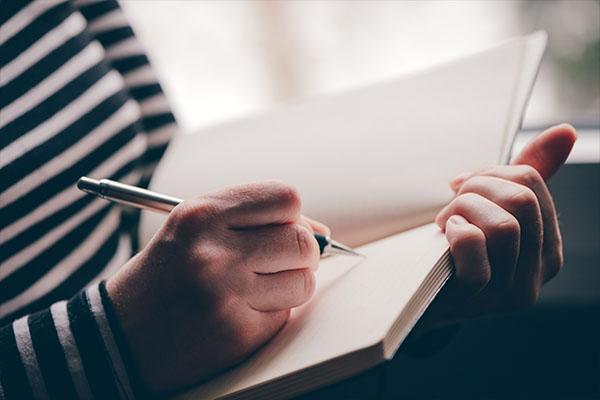
Authentic Self: It is possible to rewrite your own rules. When you experience trauma, you create rules on what your life will look like. It is possible with enough kindness that you can rewrite those rules.
It is possible to rewrite your own rules because at certain ages, for those of us that experienced certain levels of trauma, we make decisions and create rules for ourselves about what our life will look like and success and possibilities. I've learned that it is possible that with kindness, you can rewrite those rules. It is the most freeing thing that you can do. I also have realized that by allowing myself to be all of me, and as I stepped more and more into that and can't help but be me, I'm the same as I'm chatting to you on this. I'm the same with my son, with my partner, and with the CEO. I'm slightly irreverent, make people laugh a little bit, and then think a bit.
As I stepped more and more into that, it makes me realize that the funny and the joy are as important as anything deep and profound, but we quite often forget that. For me, it's about allowing the play and the wonder. For somebody that didn't play that much as a kid, I've had to learn. I feel like I've lived my life in reverse. I became quite serious and grown-up, went through some quite dramatic stuff, and then gradually became more and more like a child.
As my son says, he's like, "Can you stop being silly? I know you dress up as a banana but can you stop it?" I'm like, "No." He was like, "You're funny," which is from a kid. I'll take it from my own son. The final thing that I've learned, and I have to keep saying this because I still have to keep reminding myself of it, is allowing yourself five minutes every day to sit and be still. It's a game-changer.
I can see that as probably the hardest part for you, but I agree. I love what you shared because there's something about all the things that you shared which resonates with me, especially that element of tapping into the silliness and the play. We go through this path in life where we're attached to play usually as a child, and then we come to this period of time where play is unacceptable. It's not the norm. It's not what society wants from us. We then realize that life is too short.
We got to stop doing this. We have to stop coming into this place where we're constantly putting on the facade and just be ourselves and have fun. Life is too short. I love that you say that. I could talk to you for hours upon hours. I want to come to an unusual last question. I ask this question to all my guests. What are 1 or 2 books that have an impact on you and why?
The first one that springs to mind is a book called Deep Work by Cal Newport. In essence, what he says is, "Revel in time, get rid of all the distractions and do what you're here to do." Turn off emails and get deep into your work as opposed to responding to other people. I'm summarizing a very good and profound book into that.
I remember reading it and it woke me up. From a theater and a creative perspective, I utterly got that because that's what you do. From a business perspective, I was not doing that. I was doing the whole, "Let me be on my emails all the time. Let me do this and that." Reading it in the nicest possible way gave me a slap around the face. That is one of the very few books that I consistently recommend, even though I read it years ago.
The other one which shifted my thinking was The Big Leap by Gay Hendricks. I got to interview him on my podcast. I was very excited. I interviewed Gay and made it sound like we're friends. We're not. I interviewed him and it was brilliant. The Big Leap is a book that I wish every human being would listen to or read. I say listen to because he narrates it on Audible. He has the most delicious voice. By narrating it for me, it stayed with me. In essence, it's this whole idea about understanding what your own zone of genius is and spending the majority of your time in the zone of genius versus your zone of excellence, which might be all ego-led versus the zone of competence.
He's like, "Move more and more into your zone of genius." Reading that book gave me a little bit more permission to play and pass on those tasks that I could do but don't really want to do. It takes me ages. If there were two books that I consistently recommended over the last few years, it would be those two because they've affected me.
They are fantastic books, but I also realized that they fit well together. They're a set that should come together because if you read The Big Leap then get Cal Newport's book, what happens is you're able to say like, "Now I can get that focused time to get in and spend my time in the zone of genius,” which is a great thing to do.
It's a great recommendation. I love the way you summarize them in your own way. That's why I always ask this question because no one reads the same book in the same way. I can't thank you enough for coming on. This was so enjoyable. You've left me with a smile for days. We didn't answer the question about what a monkey bike is. Maybe you want to share with people what a monkey bike is.
It is the smallest cool little motorbike that you can buy. They're made by Honda. They were made back in the ‘70s, and they relaunched a few years ago. I'm 5'2.5”, and I need to say half because I'm very proud of the half. It's an important thing for me. For somebody that has not ridden a motorbike for days of her life, I have now bought a monkey bike. If you google it, I have bought the yellow one. If you see it, it's the most perfect thing you've ever seen.
I'm going to get myself one. It's been a long time since I've been on a bike, so I'm going to do that. Thank you so much for coming to the show. Before I let you go, I want to make sure people know how they can find you. There are so many places but please share.
The easiest thing is to go to my website, which is EmmaStroud.London. I'm everywhere. If you google me, I will pop up. You'll see me dressed as a banana. You will see me doing a very funny thing. If you google Em Stroud or Emma Stroud, I am all over the front page of Google. All of my socials are up there.
Check out the podcast and pick up the book. Your book is fantastic. I enjoyed it. Keep up the amazing work. You're a force of nature. Thank you so much for all that you do.
Thanks for having me on.
It's my pleasure. Thanks to the readers for coming on the journey. We couldn't do this without you. We could do it without you, but we want you here, so keep on showing up. Thank you.
Important Links
- Clowning Around
- Lessons from a Clown: How to Find Courage to Show Up for Yourself and Laugh Every Day
- Be More Banana - TEDx Talk
- Deep Work
- The Big Leap
- EmmaStroud.London
About Em Stroud
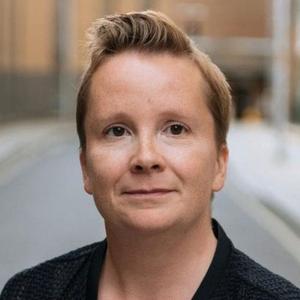
When I left school I was meant to do business studies, but I somehow snuck into theatre instead. Whilst selling crisps for that famous company, I set up my first theatre company. In the midst of this, I got my first professional acting gig, promptly lost my voice within two days and then decided I had better learn the craft of acting.
Three years at drama school later, I became an actor and gigged around for a year. During this time I met Deon, Kate, Annalea and Jane. Let’s just say an interesting director pushed us to create our own theatre company, “Abandon Theatre”. We went on to perform shows at Edinburgh, including “Sweet Love Adieu” and the sketch show “Swollen and Twisted”.
I have always had fun with improvisation – a key business skill that I have helped others to develop over the years. Just recently I have performed impro with “The Banana Bunch”, with “Bananas on The Run” just off the West End in Autumn 2018. Earlier days with Abandon Theatre saw the co-creation of our first improvisation show, “Your Line or Mine?”.


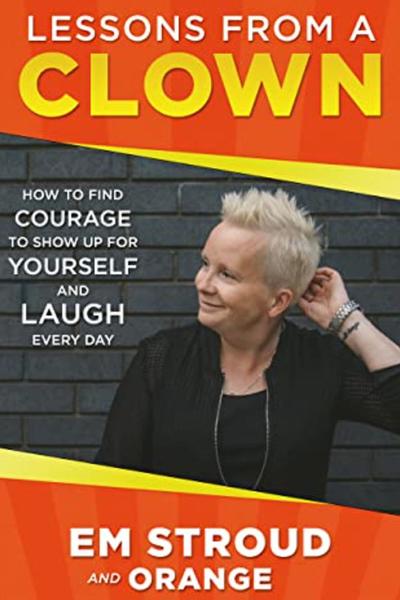
0 comments
Leave a comment
Please log in or register to post a comment